
As we embark on a new year, Just Drinks has spoken to senior figures at some of the beverage industry’s biggest names to get the inside track on what fills them with optimism – and what is keeping them awake at night. In this piece, some of the low-and-no sector’s major players have their say on what they think is to come in 2024.
Bill Shufelt – CEO of Athletic Brewing
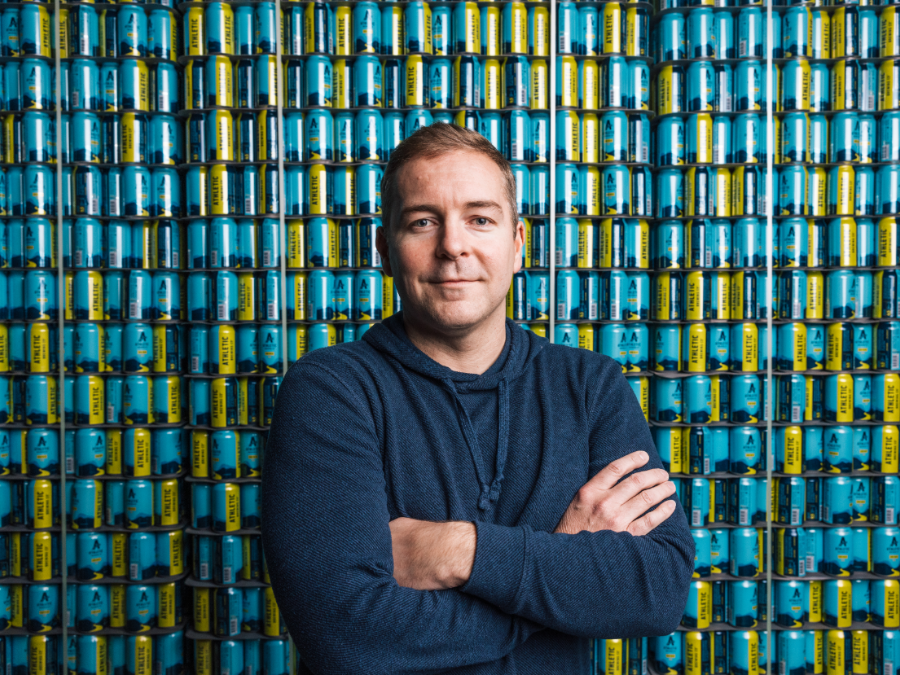
Just Drinks: What are Athletic Brewing’s best opportunities for sales growth in 2024?
Bill Shufelt: Athletic Brewing continued to outpace overall non-alcoholic beer category growth in 2023, growing at more than 80%. We doubled our brewing capacity across our two facilities in Milford, Connecticut, and San Diego, and are now in a great position to meet demand for 2024 and beyond. We will exceed 250,000 barrels produced in 2023, and we expect to see continued growth in 2024 across all markets.
We’re currently available in the US, UK, Canada, and parts of Europe. In the US, we anticipate that retailers will dedicate more cold space to the non-alcoholic category in 2024, which will be a tremendous opportunity for incremental growth. Additionally, the US convenience channel is still very underdeveloped for non-alcoholic beer, and we continue to see on-premise operators redesigning their menus to feature dedicated non-alcoholic sections.
Non-alcoholic beer perfectly aligns with the long-term wellness trends and generational shift in drinking behaviour. At less than 2% of the overall US beer market, there is still plenty of runway for non-alcoholic beer to continue expanding.
Just Drinks: To what extent do you anticipate some price elasticity/consumers to trade down – and how will you react to that?
Shufelt: Non-alcoholic beer has been a durable trend aligned with the generational shift toward moderation, lower calories and mindfulness. We have not seen wide differences in demand or price elasticity. However, we have been consistent in working with our retailers to be sure we can keep our pricing within reach of consumers as the category continues to gain trial.
Relative to most of our publicly-traded competitors, we have been more passive on price increases as a general policy, which has limited the need for consumers to trade down. We also offer consumers flexibility on pack size so that they can find the package that fits their consumption habits and price points.

US Tariffs are shifting - will you react or anticipate?
Don’t let policy changes catch you off guard. Stay proactive with real-time data and expert analysis.
By GlobalDataJust Drinks: How do you think cost inflation will impact your business in the coming 12 months?
Shufelt: Athletic Brewing has taken the last five years to invest in our own production facilities, which is unique across a non-alcoholic beer landscape where most production is outsourced. That allows us to control our cost supply chain relatively well compared to other brands in the category. We have not seen inflationary pressures on cost inputs in quite some time, and thus have been working diligently with our partners in distribution and retail to make sure Athletic beers are priced within reach of our growing community. We have sat out multiple price increase cycles in the past few years for the benefit of our customers.
Just Drinks: In which markets do you see the best opportunities for growth for your Athletic Brewing and the non-alcoholic category?
Shufelt: Generally, everywhere. While that is a simple answer, distribution and availability of Athletic brews are extremely limited given that we are a top 12 US craft brewery by size and have four of the top 20 growth brands in craft brewing. In the UK, we are among the fastest-growing craft brewers, but our distribution is limited to independent retailers and just one major grocer, Tesco, who has been very forward-thinking in their assortment. More recently, we have won listings in two major pub chains which should help drive awareness.
Just Drinks: On which key ESG issues do you expect to increase investment in 2024 and why?
Shufelt: We donate up to $2m annually to protect and restore local trails, waterways, and urban greenspaces around the world through our Two For The Trails programme. This is the largest annual environmental grant programme in the craft beer industry and this year we supported over 200 recipients with over $1.6m in grants. The goal of the programme is to improve outdoor access for generations to come by directly supporting organisations, both large and small, that are working to protect the trails, forests, and crucial natural landscapes essential to our communities.
Since 2018, the programme has awarded nearly 400 grants totalling $4.3m and helped to fund over 500 projects in 43 US states, the UK and Canada. Beyond those efforts, Athletic is a certified B Corp, so we are dedicated to positively impacting our community both inside and outside our walls.
David Begg – CEO of The Real Drinks Company
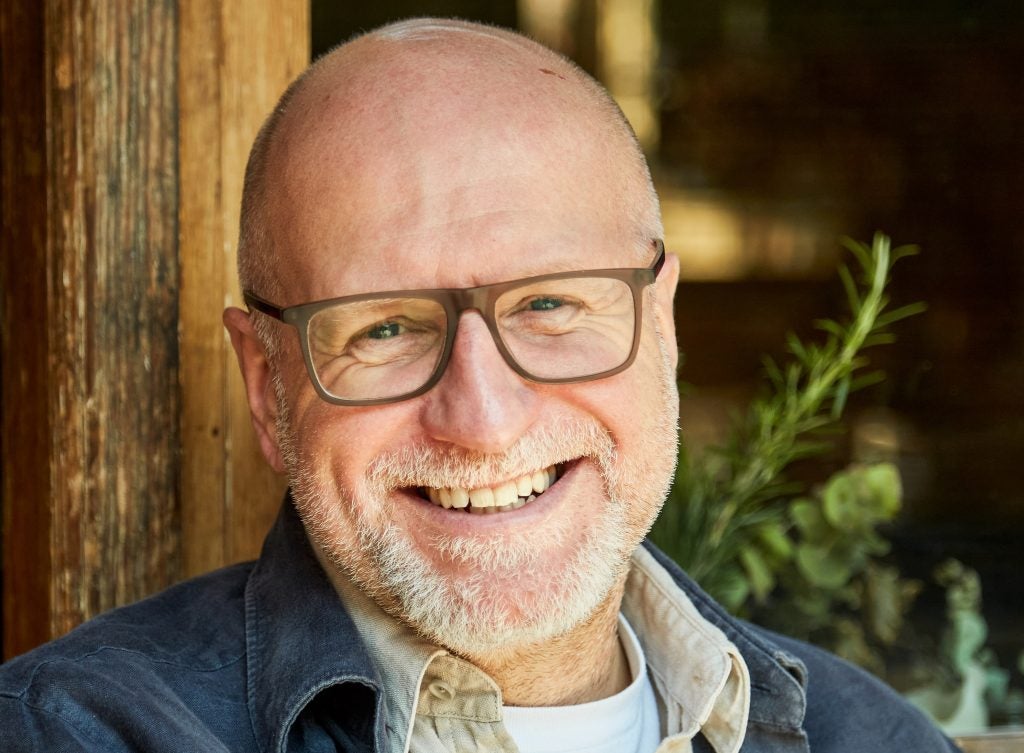
Just Drinks: What are the biggest ongoing supply chain issues you are facing and how will you seek to combat them?
David Begg: Glass continues to be a significant risk to all in the drinks industry. Global conflict and instability have affected both cost and availability. Consequently, we have to stockpile many more months of glass than we would ideally like to.
Over the past year, we have completed our new, state-of-the-art, production facility. This has enabled us to bring all production, packaging and logistics under one roof. This gives us much greater resilience to the current supply chain pressures.
Just Drinks: How do you see consumer demand across your geographic markets next year?
Begg: We are currently primarily a UK business. We do, however, expect to see significant growth from export in 2024 as we put greater emphasis on international markets.
In the UK, we are hoping that we have seen the worst of consumer cost pressures and uncertainty. As things begin to settle down, even at a higher base level, we are already beginning to see consumers increasing spending on quality products.
This will hopefully lead to significant growth in volumes. We have a very loyal consumer that has continued to buy our products throughout the past 18 months. Where volumes have dropped, it appears to be a reduction in frequency of consumption rather than a switch into lower-quality products. So as confidence grows, we expect to see these consumers increasing their purchase volumes again.
Just Drinks: What consumer trends do you expect to drive your innovation and NPD pipeline in the next twelve months?
Begg: Alcohol reduction is the most significant consumer trend that we clearly play into. Led by the UK and US, consumers around the world are reconsidering their relationship with alcohol and moderating. This opens up significant opportunity for high-quality non-alcoholic options.
Consumers are becoming much more sophisticated, and demanding, of their non-alcoholic beverages
David Begg
Premiumisation has been a buzzword in alcohol for many years but, in the non-alcoholic sector, many consumers have been reticent to spend as much on non-alcoholic drinks even when they take just as much time to produce. But this is changing. As consumers are being educated by brands they are understanding that there is a big difference between sophisticated non-alcoholic beverages and soft drinks.
Consumer sophistication [is] tied tightly to premiumisation, consumers are becoming much more sophisticated, and demanding, of their non-alcoholic beverages. They are now able to differentiate between “posh squash” and those drinks that are produced with the same care and attention as their alcoholic cousins. This enables us to play to our strengths and produce drinks of higher and higher quality and sophistication that even five years ago would have struggled to get a foothold.
Just Drinks: What is the one thing to watch out for in the non-alcoholic industry for next year?
Begg: We strongly believe that fermentation will be the primary driver of the next wave of the low-and-no boom. Fermentation is the key to the creation of balance, depth and length of flavour in alcoholic beverages, and it is just as important in non-alcoholics. In the first wave, botanicals were the primary expression of quality but, as consumer education is increasing, and palates become more discerning, they understand the difference between a blended and fermented beverage.
Just Drinks: Will Real Drinks look to focus on investing in ESG issues?
Begg: As an organisation, ESG is a deep part of our DNA. From a production facility that has been built around circular or regenerative manufacturing, to the way we get very close to and audit our suppliers and supply chain including our tea gardens, to our team working practices, to working with investors who are focused on sustainable and wellness investing.
In 2024 our particular areas of focus are firstly, further development of our production facility around solar and regenerative power, reed beds for effluent processing, and our own tea plantation on site. Secondly, raising our next round of development capital focused on added-value investors.
Just Drinks: Overall, what are the biggest challenges you think the company will face?
Begg: We have a positive outlook for 2024 after a challenging last four years. Although the company continued to grow strongly throughout the pandemic and beyond, supply chain challenges and economic uncertainty have made managing this growth much harder than it should be. We are looking forward to a slightly more controllable business environment in 2024.
Our biggest challenges remain consumer education in the low-and-no category, communicating our significant product point of difference, and driving sell-through on the retail shelf.
Ellie Webb – founder of Caleño Drinks
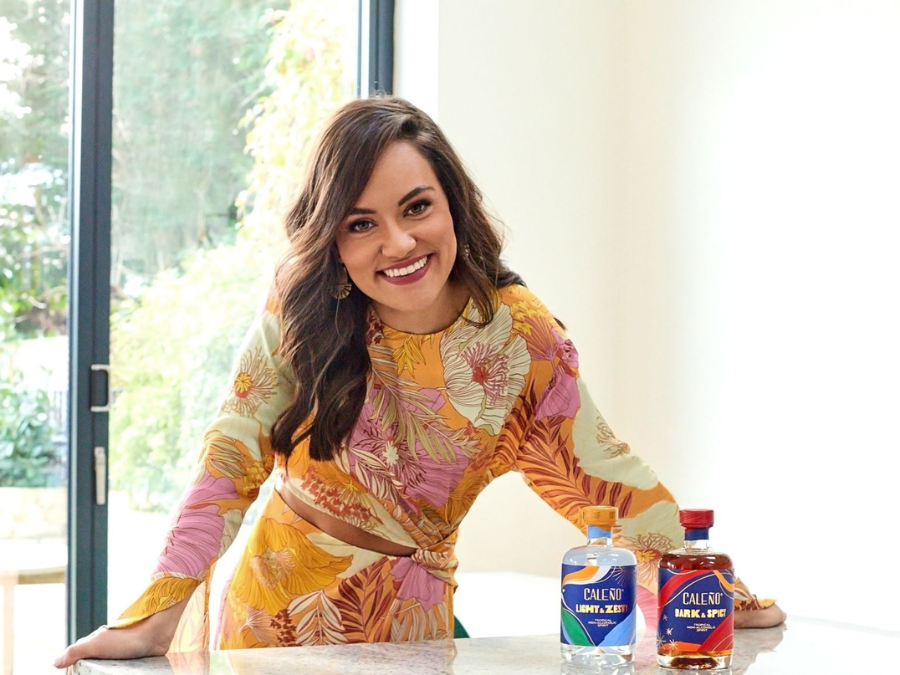
Just Drinks: What consumer trends are you watching most closely?
Ellie Webb: We are seeing a huge demand and rate of sale growth right now for cocktails in the on-trade. We have responded to this trend by launching our ready-to-party alcohol-free cocktail can that can be enjoyed on the go. You can expect to see more for us in 2024 from an NPD perspective.
Just Drinks: What will be an industry-wide focus for the non-alcoholic sector next year?
Webb: I’ve said it before, but as the industry grows, and costs increase, brands and suppliers must not compromise on quality or cut corners. The category is still in relative infancy, which means consumers are still trying non-alcoholic products for the first time. That first taste experience is critical.
Just Drinks: Which countries are best to keep an eye on for non-alcoholic companies?
Webb: The US is flying right now. Caleño has secured national distribution via 250 Total Wines & More stores, and we’ll continue to grow in this market. We’re also seeing promising growth in other European Markets which often are a couple of years behind the UK in terms of market size but are less populated and competitive, so the opportunity for brand cut-through is strong. We’re able to take learnings from the UK and apply these to new markets.
Laura Willoughby – co-founder of Club Soda
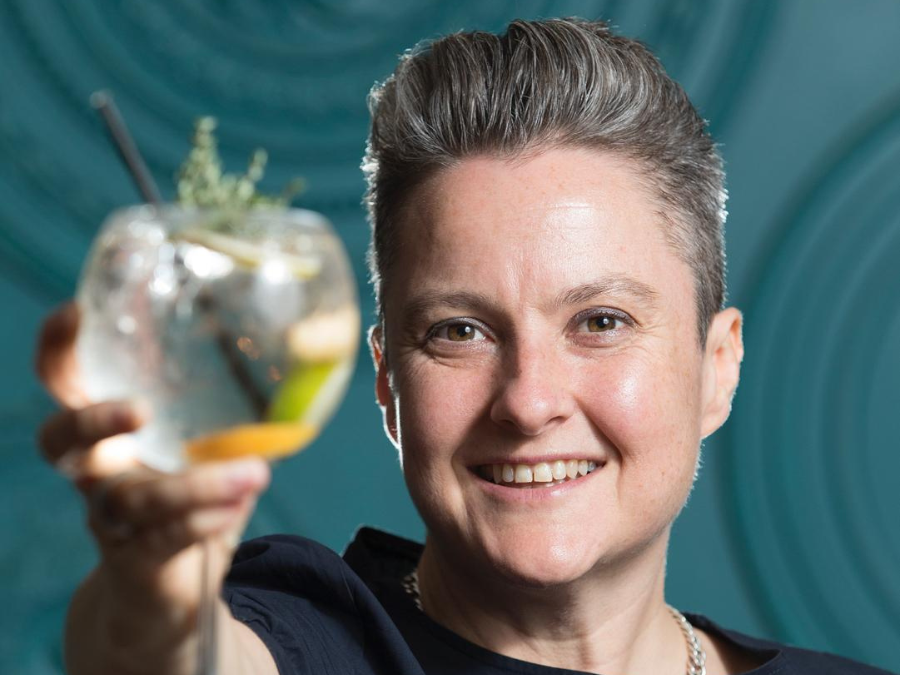
Just Drinks: What does the opportunity for growth look like for the non-alcoholic beverage sphere next year?
Laura Willoughby: Low-and-no still has a lot of opportunity – the market is still just starting.
I see retail beyond the big supermarkets being the untapped sector. We are beginning to curate collections for retailers so they can get the right product for their shelves and get support in retailing it effectively.
Foodservice is also finding that demand has increased from clients and are now not only expanding their range but also improving the serve, making sure non-drinkers at events have an equal experience. You can’t run a big event anymore and assume everyone is drinking alcohol.
Low-and-no still has a lot of opportunity – the market is still just starting.
Laura Willoughby
It will also be a big year for alcohol-free wine as advanced techniques, used in brands like the new Moderato Cuvée Revolutionnaire, up the quality once again. We will see low- and alcohol-free wines make appearances on restaurant menus across the country – there is no margin in tap water.
We have seen a growth in demand for lower-strength drinks – wine, beer and spirits – so you will see a number of spirit brands like Cut Classics hit the market that are 20% abv rather than the full 40% abv and some 6% abv wines.
Finally, low-and-no is a UK business success story, it started here first, and we will see more UK brands make an appearance across the globe. They are very in demand in the US. I look forward to hearing our export minister talking about it!
Just Drinks: How do you think cost inflation will impact your business in the coming 12 months?
Willoughby: Opening a retail space with a bar offering during a cost-of-living crisis was always going to be a challenge, but we are more than just a shop. Next year, we will be using the space to support the trade more, helping them execute a greater range. The Tasting Room is a collaborative space to help grow the low-and-no category and for me, there is strength in working together during tough times.
Just Drinks: In which markets do you see the best opportunities for growth for the category?
Willoughby: For the low-and-no sector, there is still a lot of opportunity in Europe with demand in France growing fast. The US market and Middle East are also big growth markets.
Martin Sørensen – CEO of Danish non-alcoholic wine and spirit business ISH
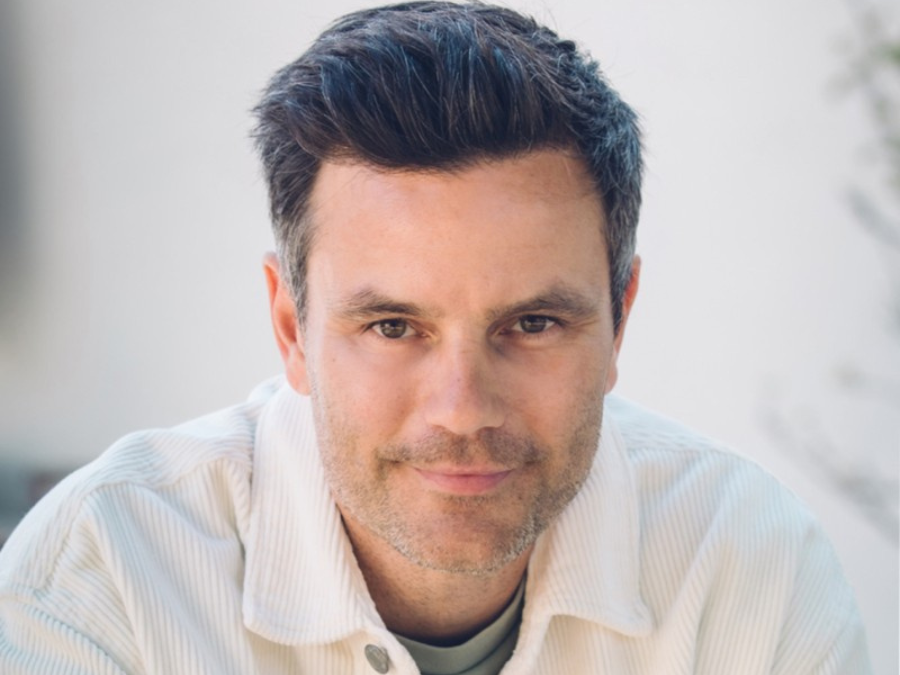
Just Drinks: Are you feeling optimistic for 2024?
Sørensen: When looking at our growth rate since the inception of ISH back in 2018, we have great reason to be optimistic. The category is growing, we are growing and we are fulfilling our purpose which, as a founder, I am incredibly proud of.
With growth, though, also comes growing pains. We are still a young category; we are pioneers, and we are learning as we go. Something that requires extra stamina and resources which is part of the game and part of the DNA of a true entrepreneur.
Just Drinks: On which key ESG issues do you expect to increase investment in 2024 and why?
Martin Sørensen: Being a Danish brand, ESG is at the core of our thinking and present in everything we do. We have recently conducted a broad CO2 emission report and a CO2 reduction programme that has resulted in our RTD production solely relying on hydro and solar.
On the social side, we continue to champion a more balanced alcohol culture by making it easy for anyone to be a mindful drinker. We partner with global brands that share the same values in order to reach a broader audience.
Just Drinks: What is the one aspect with the most potential in the non-alcoholic sector for next year?
Sørensen: Watch out for non-alcoholic wines. We are researching and developing new and innovative production methods that truly can satisfy the experience we all love from a good glass of wine.
Just Drinks: How do you think cost inflation will impact your business in the coming 12 months? How does that compare to 2023?
Sørensen: Cost inflation is a constant factor that we keep a close eye on. In 2023, when everyone raised their prices, we lowered them. We were able to offset the cost increase with higher volumes and make our products even more accessible as we asked our partners to pass on the margin to the consumer. In 2024, we have raised our prices slightly, but collectively, for 2023 and 2024, we are way below market standard.
Just Drinks: In which markets do you see the best opportunities for growth for your business and category?
Sørensen: The US is booming and fortunately we have the privilege of working with The Zero Proof as our domestic partner that’s orchestrating our growth. We are mainly present in the on-premise but expect to see significant growth in the premium retail category.
Just Drinks: What consumer trends do you expect to drive your innovation and NPD pipeline in the next twelve months?
Sørensen: Convenience in non-alcoholic is huge, as is it for most other categories. We are launching new ready-to-drink cocktails that aligns with the growing Tequila demand which we are pretty excited about. We figure that, when there are many Tequila drinkers, there are equally many NA [non-alcoholic] Tequila drinkers and we want to make sure we all can celebrate with our favourite Tequila cocktails.
Carl Hartmann – co-founder of Lyre’s
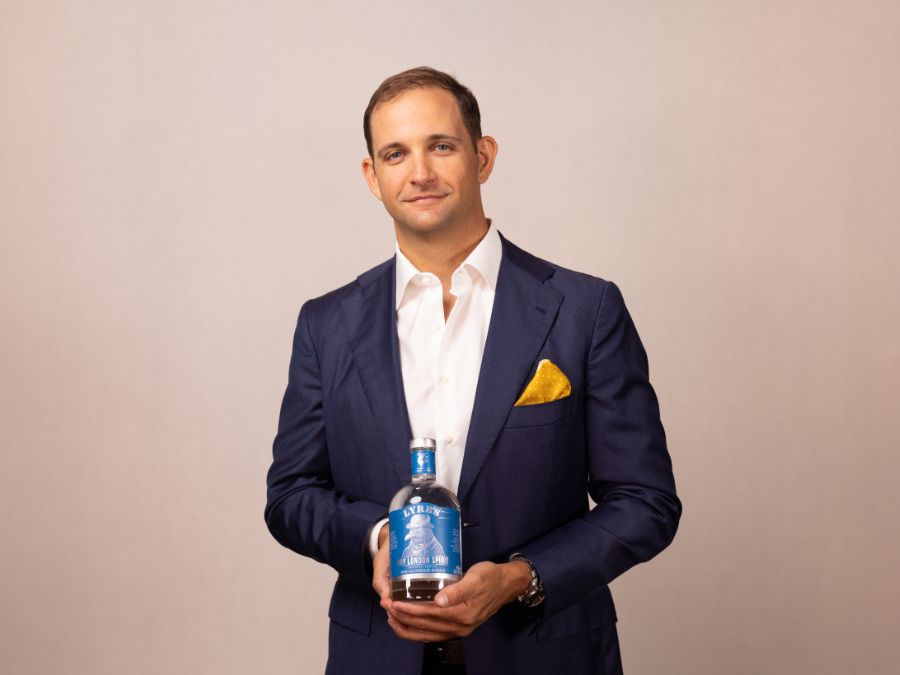
Just Drinks: What are the biggest challenges facing Lyre’s in the new year?
Carl Hartmann: I think like every producer it is probably supply chain and managing costs. We’re trying to build great products and sell at a competitive price point for consumers where every input of your supply chain – this is not just drinks, this is pretty much the whole planet, right? You have cost inputs that are going up and that’s a tightrope.
No one has a crystal ball where price elasticity is with consumers because, obviously if your inputs keep going up, you either have to eat that from a margin perspective or, like a lot of other consumer products, put prices up comparatively and try to hold ground and not go backwards.
Just Drinks: What are you most optimistic about going into 2024?
Hartmann: I’m probably optimistic in terms of consumer sentiment and inflation. It looks like we’re getting inflation under control from a macro perspective. Now, hopefully, that means we maybe have bottomed out in this, but no one knows. No one knows what the next geopolitical thing might be. So obviously, the big worry probably every brand has is if interest rates keep going up and that giant bell curve in the middle gets compressed and compressed with discretionary spending, what starts to happen is people start to go out less. These obtainable luxuries that may give their life joy, they might decide to cut back in certain areas.
We share some of the resilience of the alcohol category. People still like to go out and be social
Carl Hartmann
So far, I think we’ve been pretty lucky. We’ve found that we’ve been pretty resilient. I guess, with the backdrop of declining discretionary spending, it seems that people like to treat themselves and they seem to persevere. We share some of the resilience of the alcohol category in that same way like people still like to go out and be social.
Just Drinks: In which markets do you see the best opportunities for growth for your business and category?
Hartmann: We have a long tail, distributing in about 100. There are 40 markets that we have a proper presence in. And I think, like most businesses, there are probably eight markets that make up the majority of our revenue and focus.
Our core focus really is the US, which is our largest market. Western Europe, collectively, including the UK would be second to the US. Then, Australia – we’re indexed just because Mark Livings [co-founder] and I come from there.
Where we see a lot of growth potential: the Middle East is really interesting for us. And then a couple of core markets in Asia like Singapore, where they’ve got some amazing bars and it’s one of the world’s tasting rooms. We’re blessed to be at a really nice portion of the world’s best bars, particularly in Asia, and there are a lot of bartenders and owners who travel through, young consumers find new trends and then bring them home.
So we’re very mindful of destination markets and certainly on the back of our partnership with David Guetta we’ll be doing an awful lot in the Balearic Islands next year, particularly Ibiza and already we have a phenomenal presence in Las Vegas where David Guetta has another residency as well.



